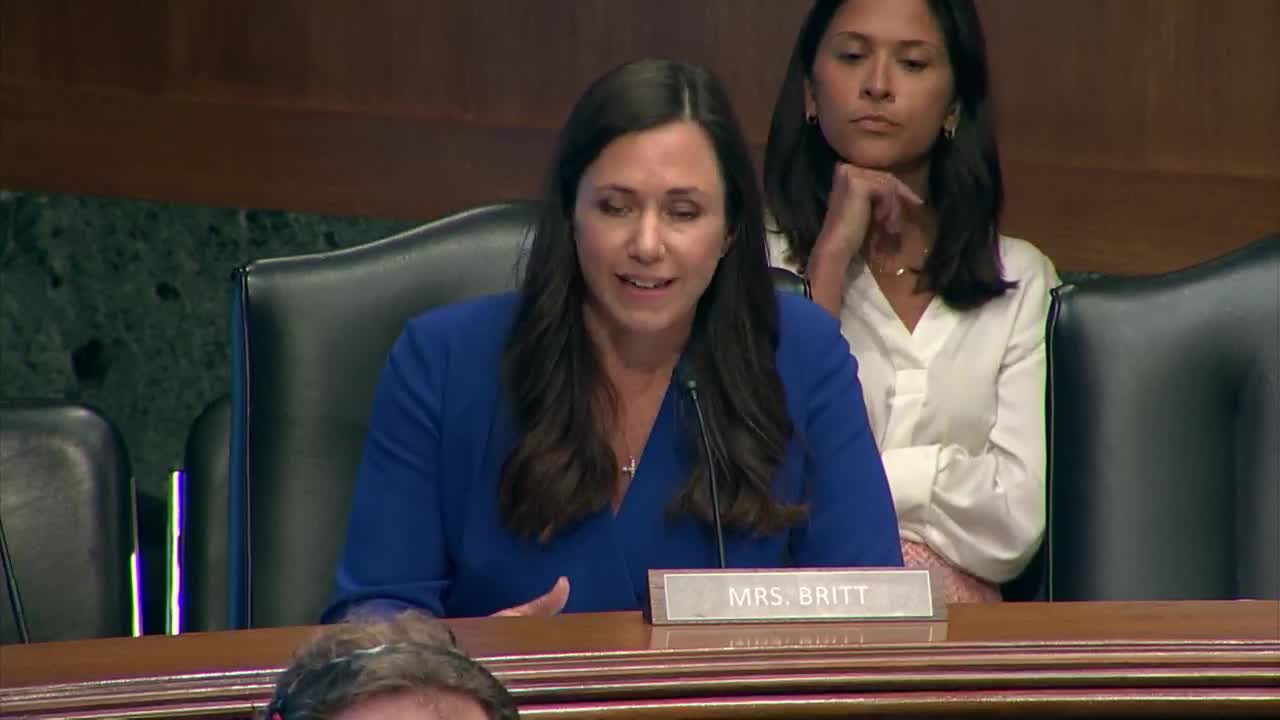Senate Hearing Explores AI Regulations Amid Rising Financial Fraud Risks
July 30, 2025 | Banking, Housing, and Urban Affairs: Senate Committee, Standing Committees - House & Senate, Congressional Hearings Compilation
This article was created by AI summarizing key points discussed. AI makes mistakes, so for full details and context, please refer to the video of the full meeting. Please report any errors so we can fix them. Report an error »

In a recent U.S. Senate Committee on Banking, Housing, and Urban Affairs meeting, discussions centered on the evolving role of artificial intelligence (AI) in capital and insurance markets, highlighting both its potential benefits and significant risks. The subcommittee hearing, titled "Guardrails and Growth: AI’s Role in Capital and Insurance Markets," aimed to address the implications of AI technologies on financial systems and consumer protection.
One of the key points raised during the meeting was the impressive growth of the U.S. financial markets compared to global counterparts, attributed to innovation and accessibility. However, concerns were voiced regarding regulatory measures from the previous administration that could hinder this progress. Specifically, the proposed predictive analysis rule by SEC Chairman Gary Gensler was criticized for undermining established technologies that financial firms rely on.
The Alabama Securities Commission was noted as a positive example, having created a financial innovation division to support responsible AI use, particularly for small businesses. This initiative reflects a growing recognition of AI's utility in areas such as underwriting and operational efficiency, which can ultimately benefit consumers by reducing costs.
However, the hearing also addressed alarming trends in financial fraud, particularly those leveraging AI technologies. Reports indicated a staggering $12.5 billion loss to consumers due to fraud in the previous year, marking a 25% increase from 2023. Impersonation scams, which have surged by 148% in a year, were highlighted as a pressing concern that requires immediate attention from regulators.
The discussion also touched on the use of AI-powered trading bots in equity markets. While these tools can enhance market liquidity and price discovery, experts warned of the risks associated with minimal human oversight. The need for robust regulatory frameworks was emphasized to ensure that firms utilizing AI are held accountable and that proper controls are in place to mitigate potential market disruptions.
As the meeting concluded, it was clear that while AI presents significant opportunities for growth and efficiency in financial markets, it also poses substantial risks that must be carefully managed. The committee's ongoing discussions will likely shape future regulatory approaches, aiming to strike a balance between fostering innovation and protecting consumers from emerging threats. The urgency of these conversations underscores the critical need for proactive measures as AI continues to evolve within the financial landscape.
One of the key points raised during the meeting was the impressive growth of the U.S. financial markets compared to global counterparts, attributed to innovation and accessibility. However, concerns were voiced regarding regulatory measures from the previous administration that could hinder this progress. Specifically, the proposed predictive analysis rule by SEC Chairman Gary Gensler was criticized for undermining established technologies that financial firms rely on.
The Alabama Securities Commission was noted as a positive example, having created a financial innovation division to support responsible AI use, particularly for small businesses. This initiative reflects a growing recognition of AI's utility in areas such as underwriting and operational efficiency, which can ultimately benefit consumers by reducing costs.
However, the hearing also addressed alarming trends in financial fraud, particularly those leveraging AI technologies. Reports indicated a staggering $12.5 billion loss to consumers due to fraud in the previous year, marking a 25% increase from 2023. Impersonation scams, which have surged by 148% in a year, were highlighted as a pressing concern that requires immediate attention from regulators.
The discussion also touched on the use of AI-powered trading bots in equity markets. While these tools can enhance market liquidity and price discovery, experts warned of the risks associated with minimal human oversight. The need for robust regulatory frameworks was emphasized to ensure that firms utilizing AI are held accountable and that proper controls are in place to mitigate potential market disruptions.
As the meeting concluded, it was clear that while AI presents significant opportunities for growth and efficiency in financial markets, it also poses substantial risks that must be carefully managed. The committee's ongoing discussions will likely shape future regulatory approaches, aiming to strike a balance between fostering innovation and protecting consumers from emerging threats. The urgency of these conversations underscores the critical need for proactive measures as AI continues to evolve within the financial landscape.
View full meeting
This article is based on a recent meeting—watch the full video and explore the complete transcript for deeper insights into the discussion.
View full meeting